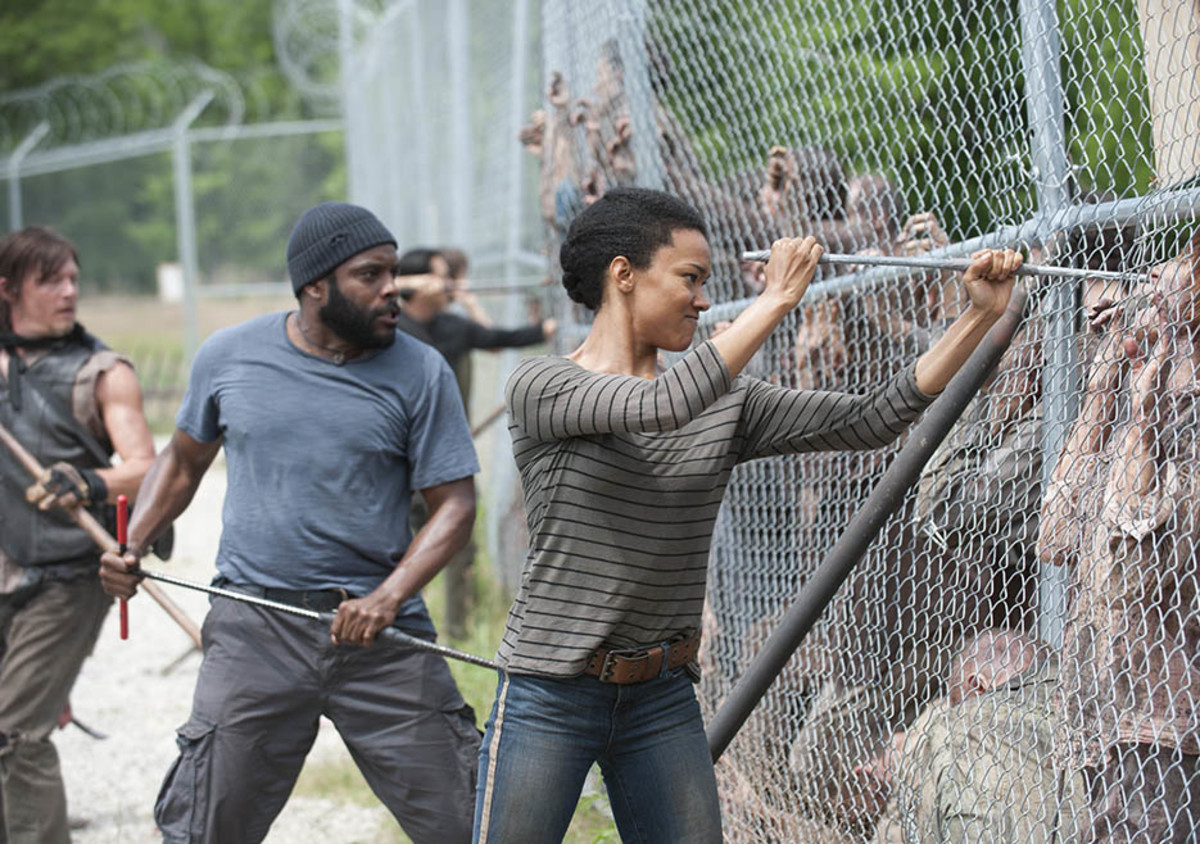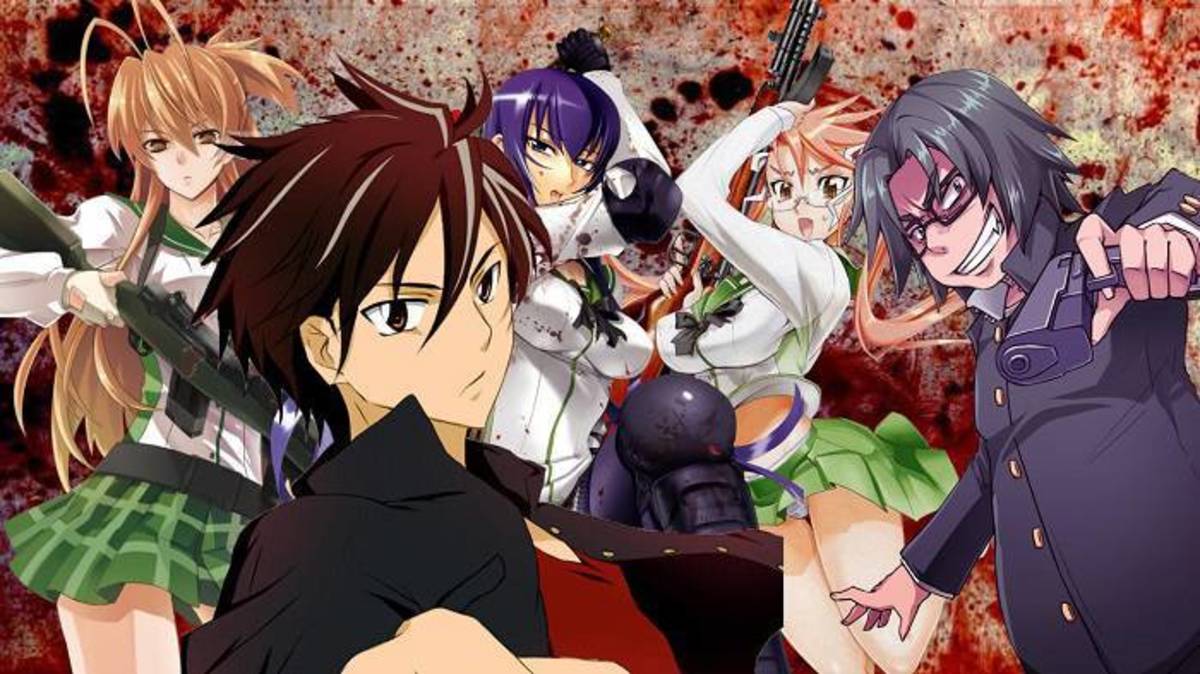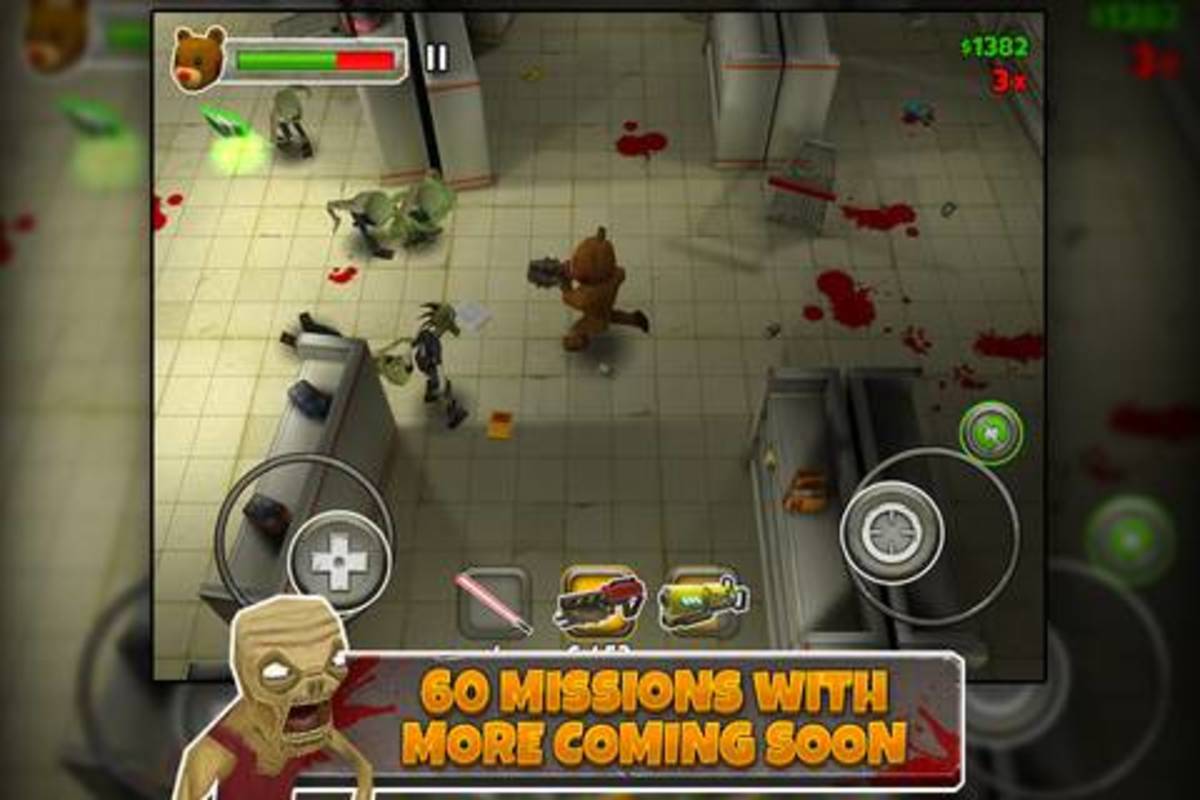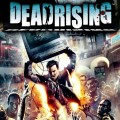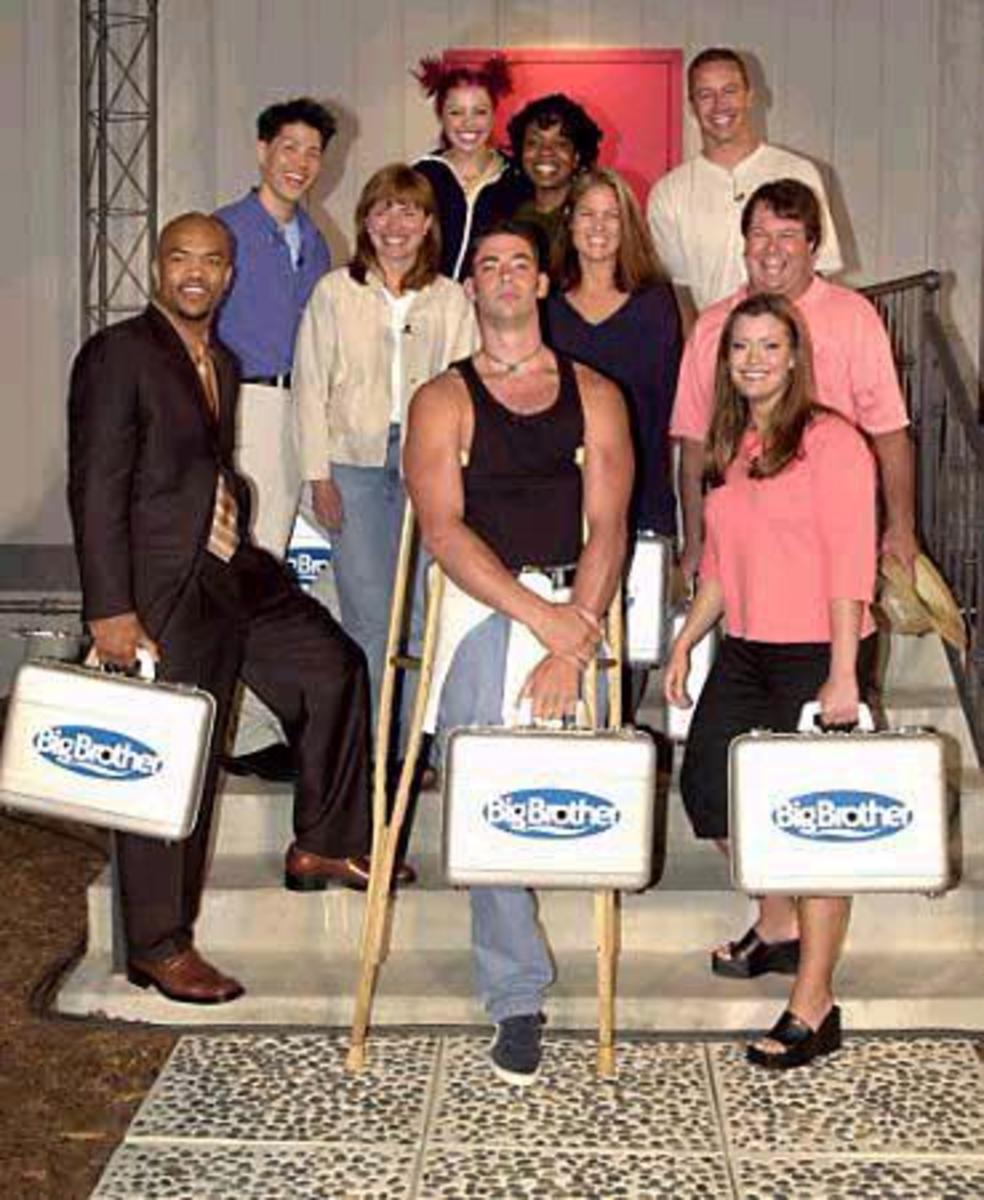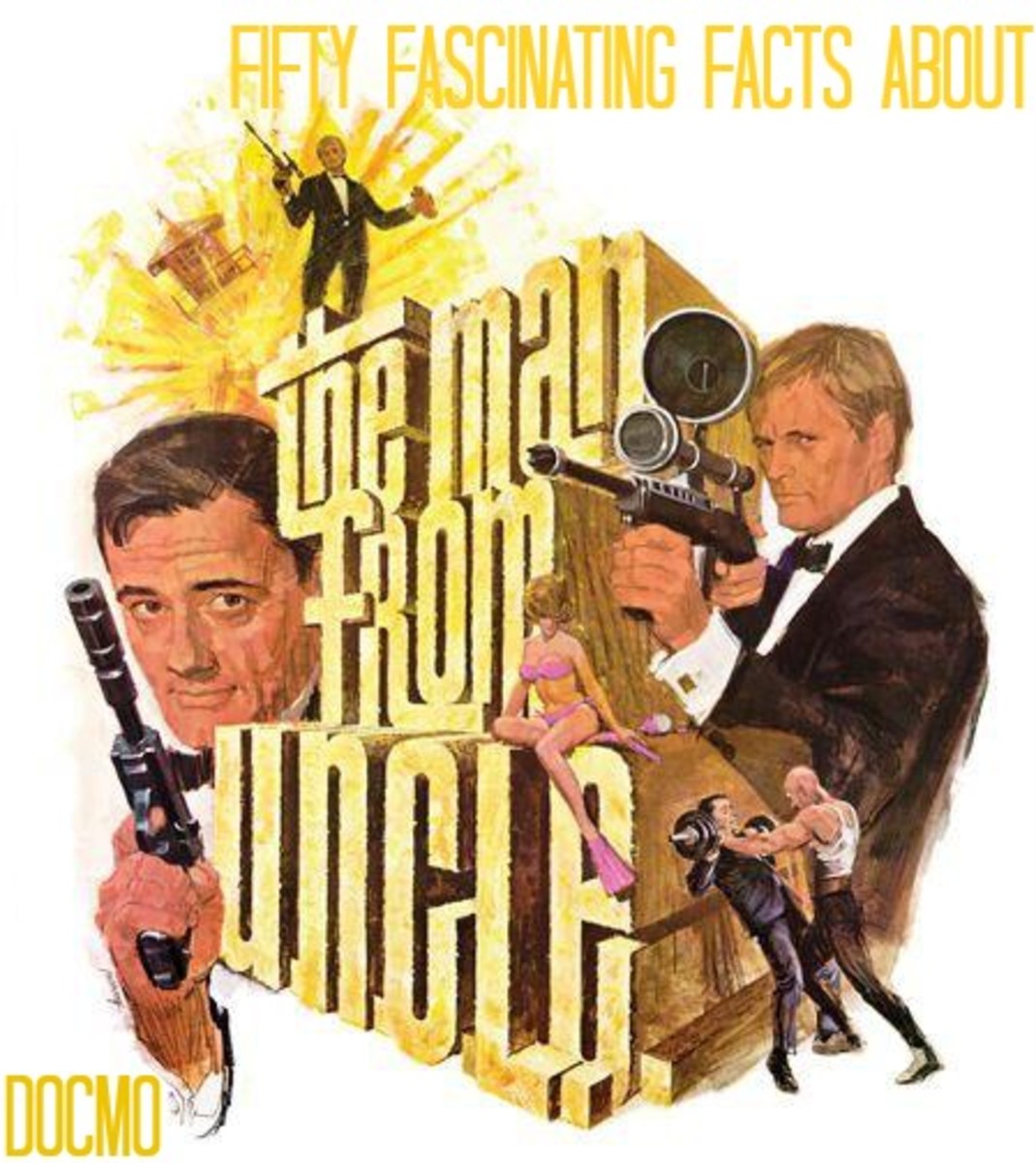Why Is the Word "Zombie" Not Used on "The Walking Dead"?
Is It a Zombie or a Walker?
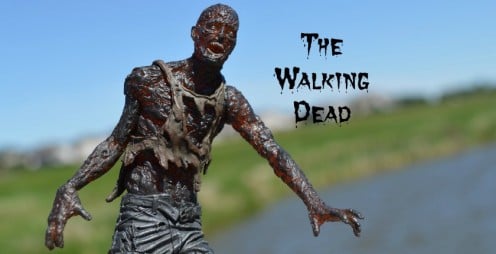
The Walking Dead Is a Popular Franchise.
The Walking Dead is a very popular TV show about a zombie apocalypse. So far, seven seasons have aired on the cable channel, AMC. There is even a spin-off show, Fear the Walking Dead. When one is on hiatus, the other one will air. We can’t seem to get enough of the zombies, perhaps, because it is a show we can really sink our teeth into. (Pun intended.)
Did you notice how many times I used the word “zombie” in the above paragraph? And have you noticed that the word zombie is never used in The Walking Dead or in Fear the Walking Dead? Why do the producers refuse to call a zombie a zombie?
Why Are Zombies Never Called Zombies on "The Walking Dead?"
Robert Kirkman is the creator of The Walking Dead. The universe of TWD began as comic book series written by Kirkman and published by Image Comics. The TV show is based on the comics, but the plot of the TV show often deviates from the plot lines in the comics.
Kirkman is the executive producer of the TV show. He made a conscious decision not use the term “zombie.” He also never uses other common terms like the “undead” or “the living dead.” He wanted to avoid referencing other cultural memes. He wanted his creatures to be original and unique. He created a world where no one had ever heard of the term zombie.
The Walking Dead productions mostly use the term “walkers” for the creatures who died and reanimated, and who now roam the world Kirkman has created
Kirkman explained his decision to avoid the Z-word at a panel discussion with Kirkman and some of the stars of the show.
“We decided very early on that there’s a lot zombie fiction out there, there’s a lot of zombie movies, and that leads to a lot of questions. Why are these characters never going ‘oh yeah, you gotta shoot them in the head, because I saw that on Night of the Living Dead.” He continued, “And so we decided if we just strip that word out, and have this show set in a dimension where zombie movies just didn’t exist, it would kind of make things a little more believable.”
Rick Grimes Shoots a Walker
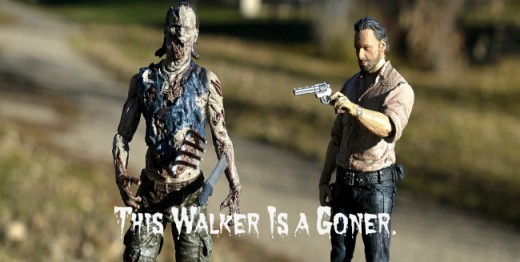
What Are the Zombies Called on "The Walking Dead"?
The main focus of the show is a band of survivors lead by Rick Grimes (played by Andrew Lincoln), who was a deputy sheriff before the world was taken over by the zombies that Rick and his group call "walkers."
As the series unfolds, Rick and his group encounter other communities of survivors. As we would expect, different groups have come up with different words for the mindless flesh-eating monsters.
Note: I use the term “Rick’s group” loosely. The group has had many changes of characters over the course of the series.
Some die of disease or accidents, some die when they are attacked by the walkers, and some die at the hands of other humans (even humans who are part of the group). Kirkman and the show-runners are pretty ruthless, and many well-loved characters are killed off.
Additionally, members of the group often get separated, but are eventually reunited. Even Rick is sometimes isolated from the main group.
Biters
In Woodbury, a small walled community headed by a man known only as “The Governor,” the term is “biter.”
Some of the people from Rick’s group are taken in by the town. The community, at first, seems like a utopian refuge, but the leader of the town, known only as “The Governor” is slowly revealed as a sociopath. The town is destroyed.
Cold Bodies
Terminus is another walled community that appears to be a place of safety, but not for long. The residents are cannibals,and some of Rick’s group who are taken in are meant for the barbeque. At Terminus, the zombies are called “cold bodies. (Presumably, “warm bodies” are those who are still alive or maybe humans after a turn on the grill..)
Roamers
Rick and his group discover the Alexandria settlement, another walled town—this one more hospitable than the previous communities. It has been “home base” for several seasons. The people of Alexandria referred to the zombies as “roamers” prior to the arrival of Rick’s group.
Rotters
A few members of Rick’s group are taken (kidnapped) by the residents of Grady Memorial Hospital. It’s the place where you can try to check out, but you can never leave. It is run by Dawn Lerner, who was head of security for the hospital in the pre-apocalypse, but now runs the place like an iron-fisted dictator of a police state. Here the walkers are called "rotters."
Other Words
There are quite a few other terms that are only occasionally used. Some of these terms are used in the TV series, but a few are only used in the comics or in other Walking Dead media (like video games).
They zombies are sometimes called bobbers (at Oceanside), creepers, dead ones, dead-heads, deadies, empties, geeks, ghouls, lame-brains, lurkers, skin-eaters, meat-puppets (Negan’s gang of Saviors at the Sancturay), monsters, skin-bags, and stinkers.
The walkers who are immersed in various bodies of water are called floaters or swimmers.
On Fear the Walking Dead, the survivors have their own terms. They call them “The Infected” (also used briefly in Season One of The Walking Dead, by Dr. Jenner at the Center for Disease Control and Prevention (a government agency). “The Infected” is used because when people first began “to turn” (the word for transitioning from dead to not-dead) in the early days of the epidemic), the zombies were thought to be sick people suffering from a disease.
They are also called “The Wasted,” "The Passed" and "The Stumbles" on Fear The Walking Dead.
A Walker from "The Walking Dead"
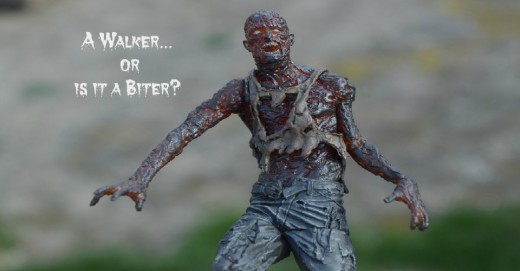
What Other Words Could Substitute For Zombies?
Here are my suggestions for some other words to use instead of zombies. Perhaps we will see them in future episodes.
Croakers
This one is my favorite. Maybe Kirkman and the show-runners passed on it because it is so obvious. “To croak” is a slang term meaning “to die.” Also the growls of the walkers could be seen as similar to the croaks of a frog, if the frogs croakswere pitched a little lower.
Goners
Why not call the walkers goners? The dictionary defines goner as a person or thing that is dead, lost, or past recovery. That certainly describes walkers. Also, all the humanity is gone once a walker turns.
Feeders, Eaters, Chompers
The walkers have only one thing on what is left of their mind. They want to feed; they want to eat. So feeders and eaters are very appropriate. As for chompers, have you seen how those walkers like to chomp down on a person.
Reapers
I like reapers because of the association with “The Grim Reaper.” These soulless creatures harvest humans to eat their flesh.
Grabbers or Gropers
The walkers are always trying to grab people, so grabbers could work. Gropers perhaps has too much of a sexual connotation
Gobsucker or Gobsmacker
Gob is a slang term for mouth in the United Kingdom. The walkers use their mouths to suck up human flesh.
However, gobsucker is a type of hard candy in England and in the Willy Wonker Candy Factory. It is also the name of a dragon in the movie How to Tame Your Dragon. I guess gobsucker is already taken. Nonetheless, I love the sound of it.
Perhaps, we could use gobsmacker—when someone is gobsmacked they are astounded and shocked; they get a nasty surprise. It’s the kind of surprised you feel when a walker appears out of nowhere and tries to eat you. Also, you might hear some lip smacking as the walkers enjoy their meal.
Krakens or Krampuses
These are the words that describe two monsters of lore—Kracken is a Norse legendary octopus-like monster of the sea and Krampus is a demon, the anti-Santa.
I imagine if someone is attacked by a walker, it may feel like the creature has as many arms as an octopus. And Krampus is a very nasty fellow.
Lurchers, Stumblers, Shamblers, Draggers
Words that describe how the creatures walk are obvious alternatives. They walk with a lurching moton, they always appear as if they are about to stumble, their awkward gait could be called shambling, and they do tend to drag their feet.
De-coms
An abbreviated form of the word "decompose" is an apt term; an alternative to "rotters."
Other Words
Here are few more obvious, but perhaps too banal, choices.
- Killers
- Goons
- Devils
- Demons,
- Dybuks (a Yiddish word for a demon who inhabits the body of a living person in order to torture the person)
- Savages
- Stalkers
What should you call a zombie? Anything you want.
Just don’t call him for dinner.
Where Can You See “The Walking Dead”?
If you have missed any episodes of the Walking Dead, you can catch up by buying the DVDs for past seasons. If you have basic cable, some of the more recent episodes may be viewed on The Walking Dead website or on the “On Demand” channel of your cable box.
If you don’t have cable you can subscribe to NetFlix to see a large number of the past seasons. A subscription to Sling TV will give you the AMC channel so you can watch current episodes on the day that they first air. You can also check amazon, I-Tunes, X-Box, Google Play, and Playstation Vue which will have episodes to rent or to purchase for downloading.
Season 9 Trailer
A Poll On "The Walking Dead"
What is your opinion of "The Walking Dead'?
Do You Want More Walking Dead?
Did you know that The Walking Dead TV show was adapted from the graphic novels of Robert Kirkman.
The TV show has many of the same characters, but some of the plot lines are exclusive to the TV show and some are exclusive to the graphic novels. You'll enjoy spotting the differences.
© 2016 Catherine Giordano

